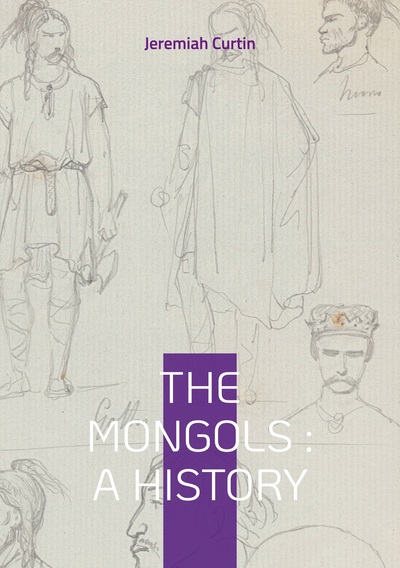- EAN13
- 9782322542475
- Éditeur
- Books on Demand
- Date de publication
- 20 septembre 2024
- Nombre de pages
- 446
- Dimensions
- 21 x 14,8 x 3,1 cm
- Poids
- 643 g
- Langue
- eng
The Mongols : A History, From Genghis Khan To World Empire - The Rise And Fall Of The Mongol Civilization
Jeremiah Curtin
Books on Demand
Prix public : 24,90 €
"The Mongols: A History" by Jeremiah Curtin is an in-depth exploration of the Mongol Empire and its impact on the world. Curtin, an eminent historian and ethnographer, offers a detailed analysis of the origins, conquests and culture of the Mongols, spanning a period from the 12th to the 14th century. The book is preceded by a preface by Theodore Roosevelt, underlining the historical and cultural importance of the Mongol Empire. Curtin begins by describing the rise of the Mongols under the leadership of Genghis Khan, uniting the nomadic tribes of the Eurasian steppe into a formidable military force. The author examines the innovative military strategies and tactics that enabled the Mongols to conquer a vast expanse of territory, stretching from China to Eastern Europe. He highlights the decisive battles and military campaigns that marked the Empire's rapid expansion. The book also explores the Mongols' social and political structure, highlighting their system of governance based on loyalty and competence. Curtin analyzes the laws and reforms introduced by Genghis Khan and his successors, which helped to stabilize and effectively administer such a vast and diverse empire. In addition to the military and political aspects, "The Mongols: A History" delves into the culture and daily life of the Mongols. Curtin describes their traditions, religious beliefs and nomadic lifestyle. He also discusses the Mongols' interactions with conquered peoples, including their religious tolerance and their ability to integrate different cultures into their own society. The book looks at the decline of the Mongol Empire after the death of Genghis Khan, analyzing the internal and external factors that led to the fragmentation and fall of the empire. Curtin concludes by reflecting on the lasting legacy of the Mongols, highlighting their influence on the development of global civilization, particularly in terms of trade, communication and culture.



















